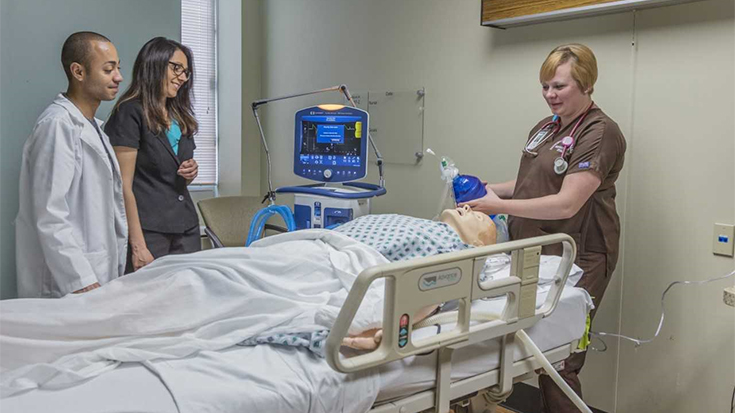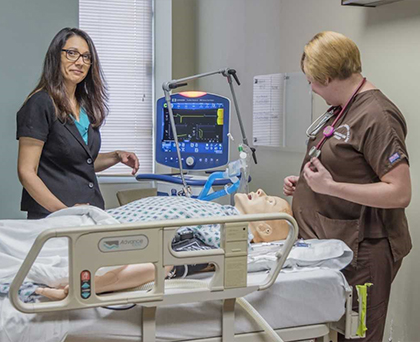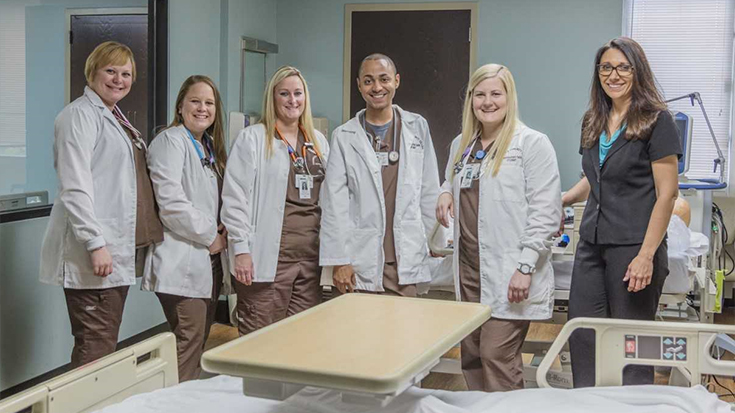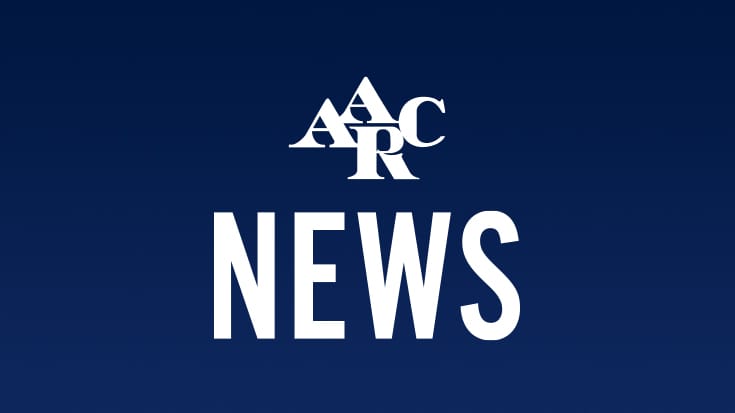
Madisonville Community College in Madisonville, KY, is a great school that graduates competent respiratory therapists. Faculty are passionate about blending high expectations, student support, and innovative technology — including high fidelity interprofessional simulation — to create graduates who are prepared both academically and clinically to become Registered Respiratory Therapists.
But with the drive to prepare more RTs at the bachelor’s degree level, they also know change is coming, and they want to make sure they are part of the solution.
Their Career Pathway Program is getting the job done.
Driven by 2015 and Beyond

“The first AARC 2015 and Beyond Conference was the impetus for starting this pathway,” said Program Director Tina Siddon, MEd, RRT. After a few moments of angst about what would happen to her program should the mandate to move the profession to a higher educational level come to fruition, she decided to go on the offensive, developing articulation agreements with RT bachelor’s degree completion programs to ensure a smooth path for her graduates.
“The goals of our Career Pathway are to make students aware of the bachelor’s degree in respiratory care, to help students who are interested in pursuing a bachelor’s degree in respiratory care to make informed decisions when choosing general education classes, to assure that students understand the process they need to go through to matriculate into a bachelor’s degree program, and for our faculty to serve as mentors in the process of achieving a bachelor’s degree,” Siddon said.
Faculty modified their existing advising plan to achieve these goals and they have tried to keep it as simple as possible for educators and students alike.
It begins with the first advising session with new students. “Respiratory faculty talk to the students about the bachelor’s in respiratory degree and let them know about the articulation agreements that we have with universities,” Siddon said. “We help the students choose general education courses that will work for our program as well as transfer to a university.”
Students receive a list of general education courses they’ll need to complete the Madisonville program as well as a list needed to enter a university. The document is reviewed each semester, and during the final semester students are provided with the contact information they’ll need to get in touch with the university they are interested in attending to ensure all requirements are being met.
“Bachelor’s degree program faculty usually begin emailing with students after they graduate from our program,” Siddon said. “Some have held video conferences with our fourth semester students to get to know them and have a bit of a personal connection with the students.”
The door remains open
Siddon admits many of her students still choose not to go on to complete their bachelor’s degrees in respiratory care, but for those who do, the Career Pathway Program has gotten high marks. “The students who choose to go on to a bachelor’s degree feel like they are well informed and know how to make the transition,” she said.
Students who run into difficulties along the way are assigned a faculty mentor to shepherd them through the process, and Siddon says even those who don’t go for a bachelor’s right out of Madisonville still benefit, because the pathway remains open to them should they ever decide to utilize it in the future.
And perhaps most importantly, they have been informed about the need for more bachelor’s degreed RTs and what it takes to earn that degree.
Said Siddon, “By the time students graduate from the program they have heard positive messages about transferring to a university for a bachelor’s in respiratory care many times. Therefore, most of our graduates believe they are capable of earning a bachelor’s degree and understand the benefits of earning the degree for their career.”
Working hand-in-hand
She believes other two-year RT programs could benefit from developing a Career Pathway Program of their own, and she encourages her fellow educators to start the process. Modifying existing documents used for advising simplifies the process, and she emphasizes the importance of focusing on general education courses when developing articulation agreements.
“I also recommend that if you have multiple articulation agreements you should try to match the general education courses in each agreement as much as possible,” she said. “It will make advising students more organized and efficient.”
Making sure articulation agreements are actually feasible for students is high on the list as well. For example, cost is a big factor for her students, so she has learned to ask about that from the outset.
Siddon firmly believes associate’s degree and bachelor’s degree faculty need to work hand-in-hand to help the profession reach its goal of more bachelor’s degreed RTs. “I think communication between associate degree and bachelor’s degree faculty is a crucial piece of the process of creating a meaningful pathway,” she said. “We are all educators who are here to help students and create respiratory therapists . . . if we persist in conversations we can usually find common ground that will benefit students.”
The process has benefited her personally as well. “I have been able to get to know some wonderful degree completion faculty in the process of working on articulation agreements,” Siddon said.

Email newsroom@aarc.org with questions or comments, we’d love to hear from you.













